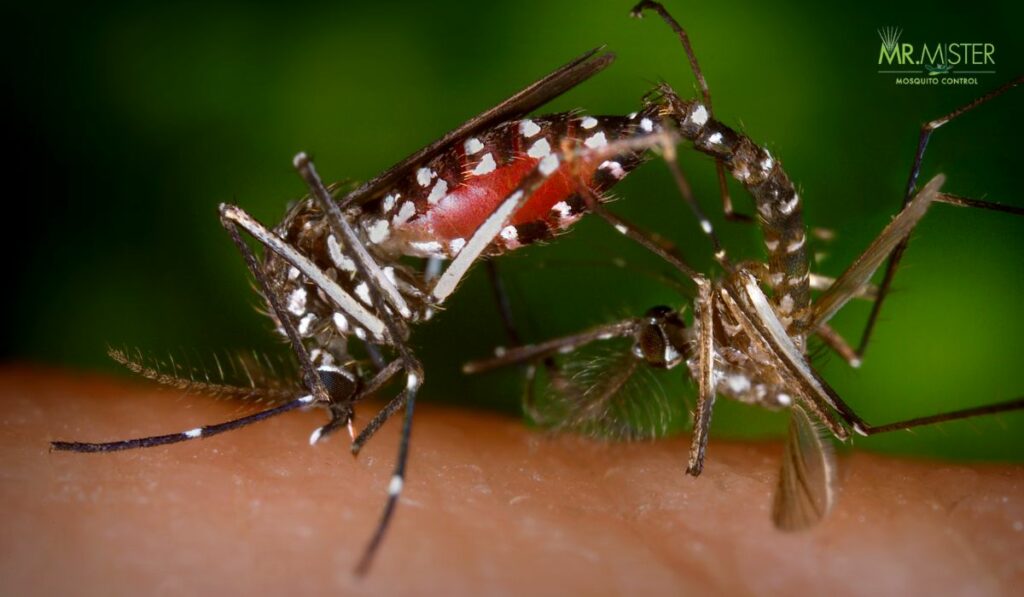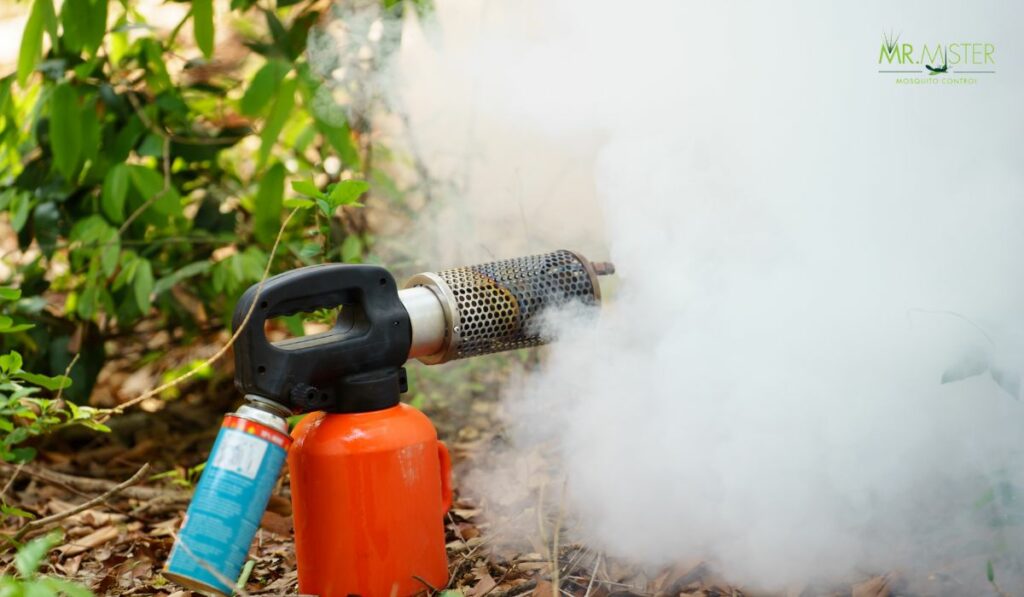The Science Behind Oil on Water for Mosquito Control
Mosquitoes lay their eggs on the surface of stagnant water.
We can disrupt their breeding cycle by forming a thin layer of oil on top of the water.
This method works by suffocating the mosquito larvae and preventing them from reaching the surface to breathe.
How Does Oil on Water Repel Mosquitoes?
When oil is poured onto the water, it spreads and forms a thin film across the surface.
This film creates a physical barrier that suffocates the mosquito larvae and prevents them from accessing oxygen.
Additionally, the oil film interferes with the surface tension of the water, making it difficult for adult mosquitoes to land and lay their eggs.
Pros and Cons of Using Oil on Water
Pros
- Effective mosquito control method: Oil on the water is an efficient and natural way to prevent mosquito breeding in standing water.
- Environmentally friendly: Vegetable oil, such as olive oil, is a safe and non-toxic option that does not harm the environment.
- Cost-effective: Using oil on water is a budget-friendly alternative to chemical pesticides.
Cons
- Temporary solution: The oil film needs to be reapplied regularly as it can break down due to weather conditions.
- Potential impact on aquatic life: While vegetable oil is generally safe for the environment, excessive use or application in large bodies of water may have unintended consequences for marine ecosystems.
How to Use Oil on Water for Mosquito Control?
Using oil on the water for mosquito control is a simple process. Follow these steps:
- Identify stagnant water sources: Look for areas with standing water, such as birdbaths, ponds, or containers.
- Please choose the right oil: Opt for vegetable oil, preferably organic, as it is safe for the environment.Olive oil is a commonly used option.
- Pour a thin layer of oil: Carefully pour the oil onto the surface of the water, ensuring it forms a thin film that covers the entire area.
- Reapply as needed: Monitor the water and reapply the oil when necessary, especially after rain or if the oil film dissipates.
Tips to Maximize the Effectiveness of Oil for Killing Mosquito Larvae
- Remove standing water: Regularly empty and clean containers or areas where water can accumulate to minimize breeding sites.
- Use targeted application: Focus on areas with visible mosquito larvae or known breeding spots.
- Maintain oil film thickness: Check the oil film regularly and add more oil if needed to maintain a consistent layer.
- For enhanced effectiveness, consider alternative methods: Combine oil on water with other natural mosquito control measures, such as mosquito-repelling plants or citronella candles.
- Educate others: Spread awareness about the benefits of oil-on-water mosquito control to your community to promote a mosquito-free environment.
Final Thoughts on Preventing Mosquito Breeding
Controlling mosquito populations is crucial for safeguarding public health.
Oil-on-water mosquito control offers a natural, non-toxic, and practical approach to disrupting the breeding cycle.
Using this method and implementing additional preventive measures can significantly reduce the mosquito population and minimize the risk of mosquito-borne diseases.
Conclusion
Oil-on-water mosquito control provides a practical, eco-friendly solution for preventing mosquito breeding in standing water.
By creating a thin film of oil, we can suffocate mosquito larvae and hinder their ability to reproduce.
Remember to choose the right oil, apply it correctly, and follow the tips to maximize its effectiveness.
Let’s protect ourselves and our surroundings from these pesky insects.
FAQs
How does oil on water kill mosquitoes?
Oil on water kills mosquitoes by forming a thin film that suffocates the mosquito larvae, preventing them from reaching the surface to breathe.
Does olive oil on water prevent mosquitoes?
Yes, olive oil on water is a barrier and prevents mosquitoes from landing and laying their eggs. It suffocates mosquito larvae and disrupts their breeding cycle.
Will oil kill mosquito larvae in standing water?
Oil can kill mosquito larvae in standing water by creating an oxygen-blocking film on the water’s surface, suffocating the larvae.
Which oil should be sprayed on the water to stop breeding mosquitoes?
Vegetable oils, such as olive or organic oils, are commonly used to stop breeding mosquitoes. They are practical and safe for the environment.
What can I put in my water feature to kill mosquitoes?
You can use olive oil, in your water feature to kill mosquitoes. Pour a thick layer of oil on the surface to create a barrier and prevent mosquito breeding.
Does Dawn in water kill mosquitoes?
Dawn dish soap mixed with water can kill mosquito larvae in standing water. The soap suffocates the larvae and prevents them from breathing.
What oil do mosquitoes hate the most?
Various oils, including citronella, lavender, and eucalyptus, repel mosquitoes. These oils can be used in combination with other methods for mosquito control.
Does vinegar in water prevent mosquitoes?
Vinegar has limited effectiveness in preventing mosquitoes. While it may repel them temporarily, it is not as reliable as other methods like oil on water.
What is the best natural way to keep mosquitoes away?
Apart from oil on water, other natural ways to keep mosquitoes away include using mosquito-repelling plants like citronella, wearing protective clothing, and using mosquito nets.
What can I put in stagnant water to keep mosquitoes away?
To keep mosquitoes away from stagnant water, you can use oil, mosquito dunks or tablets, or biological larvicides specifically designed to target mosquito larvae.
What eats mosquito larvae in water?
Various aquatic organisms, such as fish, dragonfly nymphs, and backswimmers, feed on mosquito larvae in water and help control their population naturally.
What should be poured on stagnant water to prevent mosquitoes from breeding?
Pouring vegetable oil, like olive oil, on stagnant water can prevent mosquitoes from breeding. The oil forms a film that suffocates mosquito larvae and inhibits their development.
What liquid do mosquitoes hate?
Various liquids repel mosquitoes, including citronella, lavender, eucalyptus, and lemon eucalyptus. These can be used as natural mosquito repellents.
What is the best chemical to spray for mosquitoes?
Chemical insecticides containing DEET, picaridin, or permethrin are commonly used to spray mosquitoes. Following the instructions and safety guidelines when using such products is essential.
How do you make homemade mosquito control?
Homemade mosquito control can be achieved by using natural repellents like essential oils, eliminating stagnant water sources, and maintaining a clean and well-maintained outdoor environment.
Does Pine-Sol repel mosquitoes?
Pine-Sol has yet to be proven to repel mosquitoes effectively. It is recommended to use specifically designed mosquito repellents or natural alternatives.
How do you make homemade mosquito killers?
Homemade mosquito killers can be made using vinegar, garlic, essential oils, or soap. However, using commercially available mosquito control products for effective results is advisable.
* Schedule a Free Mosquito Control Consultation – 404-941-0720 *
* Guaranteed Results * 100% Biodegradable * Locally Owned







